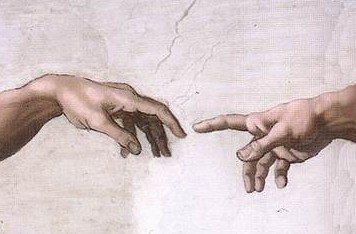Whether an everyday Catholic in the pews or someone like me who works in a ministry of the Church, we're meeting more and more people who profess not to be Christian. This comes in many forms. The following three tend to cover the most basic categories of unbelief:
- Some people have left the faith and profess nothing. They simply don't think about it, try not to, or in many cases are just too busy.
- Some people claim it is impossible to have an answer to the question of God's existence (agnostics).
- Some people profess a belief that God does not exist (atheists).
Most people fall into the first category, and these are the ones we frequently meet, work with, or even love as family members and friends. They're not hostile to the idea of God. In fact, they may say that they still believe in Him on some level. However, the fact that this belief doesn't seem to impact their lives in any measurable way is really a form of unbelief.
The "God void" gets filled with many good things (and as with all of us imperfect humans, some bad), not leaving much time left over for God. (Have you seen the Church of Softball taking place at most parks on Sunday mornings? Again, softball is great, but it's not God.)
The "God void" gets filled with many good things (and as with all of us imperfect humans, some bad), not leaving much time left over for God. (Have you seen the Church of Softball taking place at most parks on Sunday mornings? Again, softball is great, but it's not God.)
This became abundantly clear to me recently as I was speaking with a person who had seen a picture of our seventh grade students carrying the flower-strewn litter with a statue of our Blessed Mother on it during the May Crowning. He asked, "And who is that they're carrying?"
Making the Case for God
At the extreme end of the spectrum are those who are hostile to the faith. I had the pleasure recently of viewing a DVD of a debate between Catholic Answers apologist Trent Horn, and atheist Dan Barker on the topic: God: Supreme Being or Imaginary Friend? I've enjoyed Trent Horn's approach to engaging atheists on Catholic Answers Live for over a year now. Trent is intelligent, logical, and well-read, while at the same time being kind and considerate to those who disagree with him. I'm in the middle of his book Answering Atheism: How to Make the Case for God with Logic and Charity.
The debate was an even match and ended cordially. However, I couldn't help but feel that Trent took it more seriously, having prepared arguments based on science, philosophy, and logic-- that's right . . . science, philosophy, and logic! I won't try to be Trent here in this blog by explaining these arguments (he does it much better in his book), but I encourage anyone who is surprised that reasons for God's existence could come from these very UN-faith-related disciplines to check him out.
Dan Barker, on the other hand, while definitely an intelligent and well-read person, appeared frustrated and insulting, as if he couldn't believe a smart guy like Trent could be duped into believing in an imaginary friend like God.
Responding with Charity
What impressed me most about the debate was the way that Trent respectfully responded to Mr. Barker. He wasn't a pushover by any stretch of the imagination, but Trent was confident in his beliefs and knowledge, and that gave him a peace that couldn't be shaken by the insults and taunting.
I believe this is the approach we all should take: to respond with charity, remain calm and confident in our beliefs and in our knowledge that God loves us and cares for us. Where does this confidence come from? Where can we find an abiding peace that remains, even when someone responds negatively to our belief?
Peace and confidence (fortitude) are gifts of the Holy Spirit, and fruits of prayer, the Sacrament of Reconciliation, and reception of the Eucharist, among other things. These three aspects of our faith have fortified saints, popes, and martyrs down through the generations of Catholics since the time of Christ-- and they can help you and your children, too!

